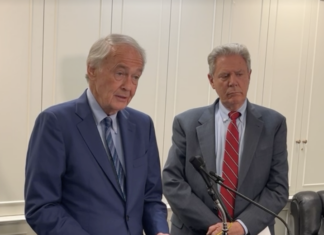Back in 1992, during Azerbaijan’s war against Artsakh and Armenia, thanks to the work of the Armenian community and lobbyists in the US, Section 907 was included in the text of the Freedom Support Act. It prohibited the US government from providing any support to Azerbaijan until the US president could report to Congress that official Baku was taking concrete steps to lift the blockade of Armenia and was not using force against Armenia and Nagorno-Karabakh. The initiator of Section 907 was the Democratic Senator John Kerry and Senator Joe Biden was also actively involved in the whole process.
From the moment President George H. W. Bush signed the act, it came into force and became an obstacle to Azerbaijan-US relations, remaining in force for about 10 years. During those years, Azerbaijan was the only former Soviet country that could not receive direct assistance from the US government. Many attempts, through diplomatic channels or by lobbyists, were carried out to attempt to counter it, but Armenian lobbyists managed to leave Section 907 in force.
After the events of September 11, 2001, President George W. Bush, on the basis of an imminent threat to national security, turned to Congress and requested the opportunity to waive Section 907 each financial year and provide military and other assistance to Azerbaijan for the fight against terrorism, coalition counterterrorism operations, and Azerbaijan’s border security, while assuring that this assistance would not in any way hurt the Azerbaijan-Armenia negotiation process and would not be used against Armenia.
Since 2002, every March-April, the president uses his right to waive Section 907 and provide assistance to Azerbaijan. As a result, Azerbaijan has been receiving assistance from different agencies, and the amount sent just in the last 4 years has been hundreds of millions of US dollars security assistance to Azerbaijan.
Interestingly, this year President Biden has not yet sent a waiver letter to Congress; that is, he has not yet waived Section 907 and has not provided security and other assistance to Azerbaijan. There could be several reasons.
First of all, until October, when the next financial year begins, Section 907 may still technically be waived. Second, it is possible to find some legal mechanisms to enforce the previous waiver letter, circumventing Section 907 for the next year.








